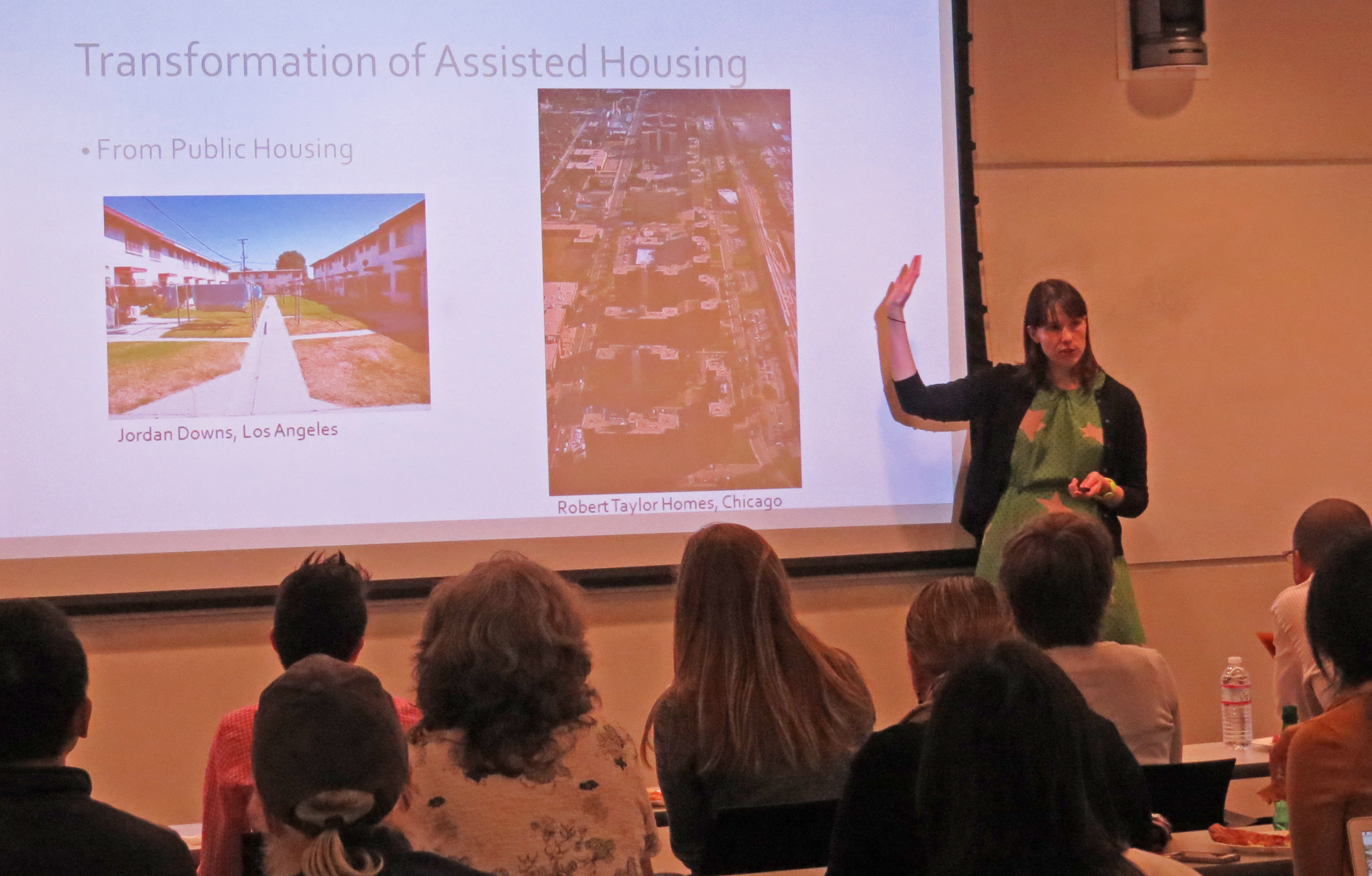On Tuesday, April 14, Dr. Ann Owens, Assistant Professor in the sociology department at USC, spoke to a full room of 60 about her research on the effects of federal housing policy on the deconcentration of poverty.
To establish some context for her research questions and methods, Dr. Owens explained that housing policy has become the major urban policy, tasked with addressing racial and class-based inequities and deconcentrating poverty. Since the end of urban renewal, scholars and policymakers have come to a consensus that poverty concentration contributes to a negative cycle that harms individuals and communities. Urban housing policy since the ’80s has sought to decrease poverty concentration, with the demolition of public housing and the rise of dispersed forms of aid such as Section 8 vouchers and the Earned Income Tax Credit.
Did this work? Dr. Owens finds little evidence that there is a relationship between the dispersion of assisted housing units and the deconcentration of poverty. Using Census data for the 100 largest urban areas in the U.S., and carefully-chosen tract-based measures of poverty concentration and assisted housing unit concentration, Dr. Owens constructs a regression model for poverty concentration as a function of assisted housing unit concentration and control factors. She finds no relationship from 1980-2000, and a very modest relationship after 2000. She theorized about the mechanisms that would explain this non-relationship. People with wealth avoid neighborhoods where there are assisted housing units, for one. Two, assisted housing touches only a fraction of the poor. Dr. Owens concluded by offering some thoughts on policies that could improve these neighborhoods of concentrated poverty, such as place-based investments.
Dr. Owens fielded questions about levels of geographic detail, about concentration of poverty and the epidemiology of disease, and about the relationship between race, class, and housing preferences. The event was the final lecture in the Lewis Center’s 2013-14 Housing Lecture Series.
